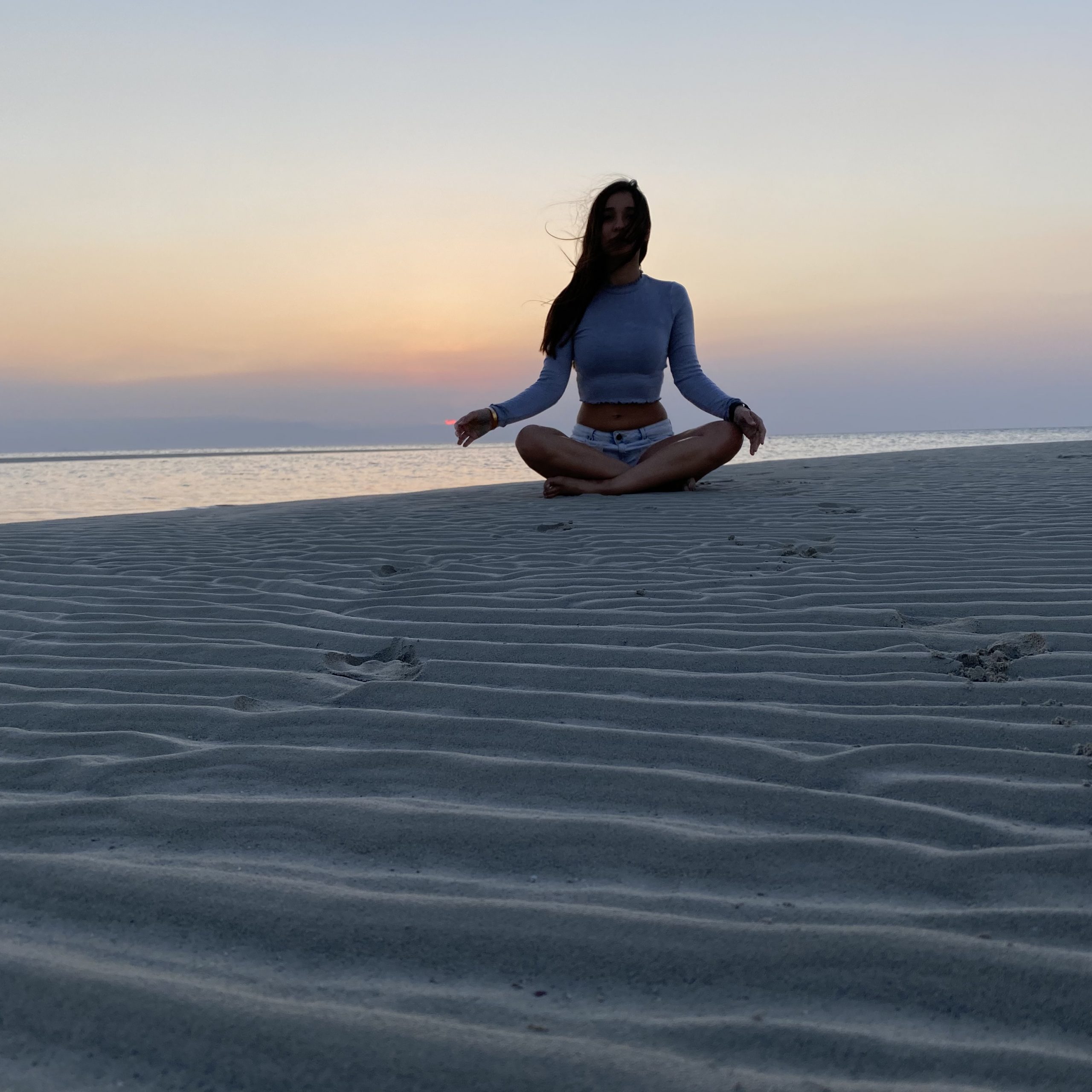Mindfulness is the greatest method in the world — life-changing, in truth — for engaging with oneself and manifesting your greatest wish. It is a buzzword of now, and it is employed in a variety of contexts, which can be perplexing. But mindfulness isn’t complex; it’s being aware of the current moment while maintaining an open and accepting mindset. This simple technique can alter our habitual feelings and emotional patterns, allowing us to see things from a different viewpoint. In a heartful setting, we sat down with Inji Refaat, a counseling psychologist to learn more about the importance of mindfulness in our lives.
Can you tell us about yourself?
Well, as you mentioned before, I am a mindfulness practitioner and psychologist. I have earned my Master’s degree in Counseling Psychology from Webster University in Vienna.
Have you had certified training in mindfulness?
I am a certified Mindfulness Practitioner from the UK College of Mindfulness Meditation. I received training and experience from different places like The Behman Hospital in Cairo, Egypt, the Counseling Center at Webster University in Vienna, and Ökids – Center for Child and Adolescents Psychotherapy in Vienna. I have worked with adults with a wide range of psychological and emotional issues including stress, anxiety, panic disorder, depression, and I have developed my experience with children and adolescents as well.

As an expert, what is ‘mindfulness’?
Mindfulness is the ability to be fully present and fully aware of where you are with, what is happening around you, and what is going through your minds such as different thoughts, emotions, and feelings. It is all about connecting with oneself, body, and state of mind all at once. How to be in total control of your thoughts and emotions, and redirect your consciousness to be more aware of everything around you instead of being directed to what you feel on the spot, or as I call it ‘auto-piloted. Once you realize this from the start, you acquire the option of moving forward past your spontaneous thoughts and emotions and more in time with your healthy state of mind.
How does mindfulness enable people to handle their inner emotions and thoughts better?
Mindfulness has been linked to psychological well-being both conceptually and experimentally. The aspects of mindfulness, notably awareness and nonjudgmental acceptance of one’s conscious moment, are viewed as highly beneficial antidotes to prevalent aspects of psychotherapy discomfort, anxiety, fret, fear, rage, and so on—many of which require disordered inclinations to resist, repress, or over-engage with one’s traumatic thoughts and feelings. There are certain steps to this, initially, you need to be aware and admit that all your emotions exist and are valid. Then you have to accept them in recognition, and only then can you decide what to do about them. When you constantly practice the first two steps, it becomes more logical to reach better consequences.
How does this matter-of-fact perspective help those who are suffering? What role does this kind of knowledge play in the treatment?
Practicing mindfulness, in general, varies from one person to another. It works with general aspects like anxiety, wellness, and panic attacks. But it doesn’t usually work with severe cases like ADHD or severe anxiety. That is why I assess carefully during the first sessions and determine the response of the case to this technique. If I stumble across such cases, I would refer them to seek professional clinical aid.
What transformations can people witness when they practice mindfulness meditation?
Mindfulness is not just a meditation it is a mindset that includes different attitudes to enable you to become more present in your life, people can be able to control their emotions and thoughts instead of being overwhelmed by them, as well as becoming more mindful or present during their daily activities such as eating, walking, working, or enjoying a vacation.
Do you think mindfulness practice is enough in and of itself for people to change?
I believe change can occur in specific situations such as anxiety, stress, and general wellbeing through mindfulness if the person is applying the techniques and practices used in mindfulness. However, it should be mentioned that Mindfulness is an ongoing learning process that requires indefinite practice for the change to be maintained. It makes you more appreciative of the present moment and more immersed in life as we know of it.
Can you elaborate on the difference between mindfulness and concentration?
Concentration requires the mind to remain on a specific point; it is a forced kind of activity, while mindfulness on the other hand requires awareness of different things in the present moment.
Are there any other factors or elements that go hand-in-hand with the mindfulness philosophy?
There are no exact factors to be listed because everything can be done through mindfulness on its own. The way you eat, for instance, when you become aware of your emotions, you get to control your eating habits and not jeopardize becoming anorexic or overweight. Hence, reserve a healthy fair to your life. It goes with running and working out, you get to enjoy the raw experience and get your body and mind in parallel to the process.
What philosophy do you usually live by, if any?
I would say, just live your day in moments. Only then, you’d feel content and present.
What are you most passionate about?
I am passionate about helping people with Mindfulness-Based interventions. I received my training to use Mindfulness to treat clients suffering from clinical Psychological issues as well as for individuals seeking general wellbeing. I offer both groups and one on one Mindfulness sessions.
Your goals as a mindfulness instructor?
I see myself doing what I do for the longest time. Maybe get my Ph.D. in psychology and teach it to others to help them in turn.



